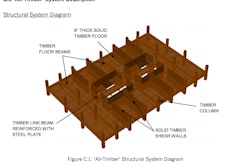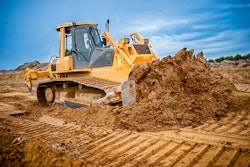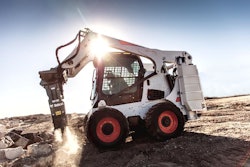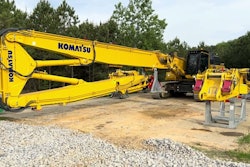To get a feel for the capabilities of its new ISV5.0 diesel engine Cummins let us drive a handful of medium-duty commercial vehicles running on the new powerplant Friday morning.
The new engine, with some minor turbocharging modifications, will eventually find its way into the Nissan Titan half-ton pickup, but for now we were limited to laps around the track with a 30,000 pound school bus, a tow/recovery vehicle, RV and panel van.
While the power won’t crush you into the seat on takeoff, acceleration was acceptable in all four of these medium-duty vehicles, given their weight and configurations.
The big takeaway from the demo is the engines’ lack of noise and clatter. Inside these vehicles, the engine was barely audible—Lexus-like quiet. (See our explanation of the technology that makes this possible here.) Outside, the decibels come up a bit, but they’re still sufficiently quiet to hold a conversation in a normal tone of voice standing in front of the hood with the engine at idle.
Is this important? If all you care about is fire-breathing power and torque, probably not. But automotive diesels are beginning to gain acceptance in the U.S. market and certainly the noise of a diesel engine has been one of the factors, along with exhaust emissions, that have kept some people out of the market.
A quieter engine is not only convenient, there’s a bit of a safety bonus for contractors when they don’t have to shout to be heard over the noise of their trucks. And with a quieter diesel you don’t have to turn off your truck to hear or be heard on the speakers at a drive-through restaurant. Last but not least, your neighbors will appreciate it when you head out every morning if your truck doesn’t sound like a launch of the space shuttle.
For contractors the advantages of diesel in any size pickup are many. It is a safer fuel thanks to its higher flash point relative to gasoline. Many oil companies won’t allow gasoline engines around their refineries for this reason. Plus diesel gives contractors the convenience of a common fuel that works in equipment as well. Managers and supervisors with high-milage jobs will benefit from the better fuel economy as well.









